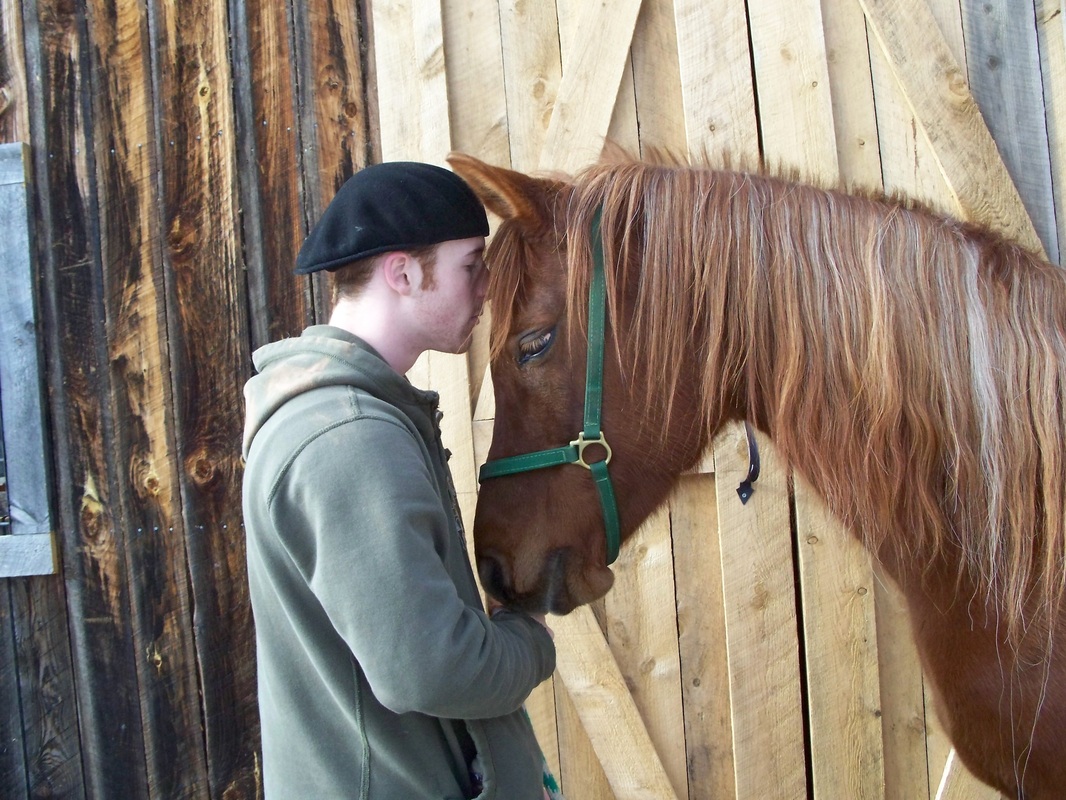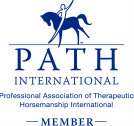MissionMedicine Horse Farm is founded on the belief that experiencing and riding horses significantly improves the lives of individuals with physical,emotional, and developmental disabilities. At Medicine Horse our mission is to provide a secure, challenging and inspirational environment that brings extraordinary benefits of Therapeutic Riding, Equine Assisted Activities, Horticulture Therapy and Nature-based Therapy to a wide range of individuals through the sharing of our knowledge, compassion and dedication.
|
The Benefits of Therapeutic Riding and Non-mounted Activities
Physical: It is the horses movement which has a dynamic affect on the rider's body. The horse stimulates the rider's pelvis and trunk in a manner that closely resembles the normal gait of a human. This movement can be used to produce specific physical changes in the rider including normalization of muscle tone and improvements in posture, balance, coordination, and increased endurance.
Sensory: The horse and the riding environment offer a wide variety of input to participants. Movement exploration on the horse combined with so many other sights, smells and sounds one encounters in the riding program contribute to the overall sensory experience:
Emotional: The success of overcoming fear and anxiety and the ability to achieve riding and other related skills help individuals realize self -worth and increase self esteem. The companion animal bonding and development of new skills are critical components to the success of the experience. Relationships developed between participants, volunteers, horses and staff are all an integral part of a positive emotional experience.
Cognitive: The horse provides a strong motivator for participants. Riding lessons incorporate activities and games on horseback designed to help achieve specific goals such as following multi-step directions, staying on task, color and number recognition, and reinforcing existing skills as well as learning new ones.
Social: The programs provide an excellent opportunity for participants to interact with peers, program volunteers and staff in a positive and enjoyable environment.
Sensory: The horse and the riding environment offer a wide variety of input to participants. Movement exploration on the horse combined with so many other sights, smells and sounds one encounters in the riding program contribute to the overall sensory experience:
Emotional: The success of overcoming fear and anxiety and the ability to achieve riding and other related skills help individuals realize self -worth and increase self esteem. The companion animal bonding and development of new skills are critical components to the success of the experience. Relationships developed between participants, volunteers, horses and staff are all an integral part of a positive emotional experience.
Cognitive: The horse provides a strong motivator for participants. Riding lessons incorporate activities and games on horseback designed to help achieve specific goals such as following multi-step directions, staying on task, color and number recognition, and reinforcing existing skills as well as learning new ones.
Social: The programs provide an excellent opportunity for participants to interact with peers, program volunteers and staff in a positive and enjoyable environment.


